public health
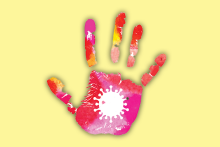
ON MARCH 11, 2020, the World Health Organization declared a global pandemic of covid-19. The virus causing covid had already been circulating for at least four months. People were dying from some kind of strange pneumonia. In the five years since, our world has changed. As of December 2024, there were more than 7 million covid deaths worldwide (the actual number is likely three times that high) and 1.2 million were in the United States. The coronavirus has left an indelible mark on relationships, social institutions, and politics.
In 2025, we are still dealing with the shock and trauma of who and what we lost. Our sublimated grief, confusion, and anger too often manifest as personal denial, social apathy, or political individualism. All while the virus persists among us. For proper healing and to navigate this “new normal,” we must first square the last five years.
From the jump, the U.S. failed to provide an adequate pandemic response. President Donald Trump, in his first term, was handed an unexpected event — but not an unprecedented one. Preparations for a mass public health event were available, but by politicizing public health his administration left the country vulnerable. In 2018, Trump’s national security adviser oversaw the disbanding of the global health security team. Trump’s adversarial stance toward China, including increased tariffs, negatively impacted the supply of personal protective equipment (PPE) available in the U.S. In those first key months, the administration chose propaganda, not science, to fight the pandemic. In May 2020, Trump pulled the U.S. out of the World Health Organization (as he did again in January this year), which was coordinating a global response.
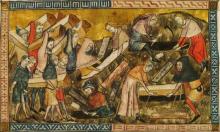
In some cities, mistrust was widespread. In others, people came together across religious lines.
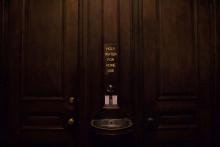
COVID-19 reminds us that we cannot function alone. Some social gaps can make people more vulnerable. For example, if someone in your community has the symptoms of COVID-19, would that person have someone to call? They may need a method to get to the hospital. They may need help in paying for the medical bills because they’re uninsured or underpaid. If schools closed down in your area, and the parents still needed to go to work, would the children have somewhere to go? Would they have something to eat? If someone in your community is experiencing anxiety regarding the virus, are your community members equipped for the pastoral care work of acknowledging fear and offering solidarity and love?

Do pastors have any unique responsibilities in the midst of an outbreak?
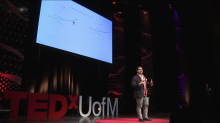
Abdul El-Sayed, a Michigan-born American of Egyptian descent who, last year, very nearly became the first Muslim governor in U.S. history. Abdul is a professor and medical doctor turned politician and civil servant, who has a fantastic new podcast with on public health called America Dissected. Additionally, his new book, Healing Politics, will be out on May 5, 2020 and is now available for pre-order.

70 U.S. healthcare organizations endorsed a report about public health and climate change.

Public health professionals strive to bridge the gap between good intentions and good outcomes. Learning about public health will equip Christians to think on a systems level, to have evidence-based programs, champion accountability, and partner with people most affected to accomplish systemic change.

“We should never talk about ‘therapeutic’ abortion,” the cardinal said in his homily, according to Honduran media reports.
“Therapeutic abortion doesn’t exist,” he said. “Therapeutic means curing, and abortion cures nothing. It takes innocent lives.”

How would you feel if you realized your children’s water was being poisoned, and your government didn’t seem to care? That’s the story of the parents of 8,000 mostly poor and black children in Flint, Mich., (which means most all of the children in urban Flint) that has finally hit our media front pages. The evening news I am watching as I write warns the parents of Flint not to bathe their young children in city water.
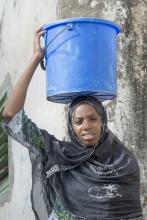
Menstruation is a natural biological function and essential to good reproductive health. But cultural and religious taboos mean it continues to be treated as shameful and dirty. In many parts of the world, poor women and girls try in agonizing silence to manage their periods, while lacking water, restrooms, and hygienic sanitary materials.
On May 28, 2015, activists around the world will join WASH United, a global humanitarian organization, in celebrating the second annual International Menstrual Hygiene Day. The mission of the day is to break the taboo around menstruation and raise awareness of the associated dilemmas many women and girls face.
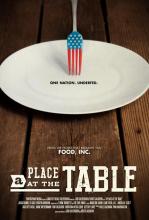
A new documentary from the producers of Food, Inc. premieres today, serving up the critical problem of rising hunger in the United States with a surprising thesis: we’ve already solved it.
… Forty years ago, that is. A Place at the Table, the newest documentary from Participant Media, reveals how political will in the 1960s and 70s ushered in an era of bipartisan-sponsored, government-funded programs that “nearly solved” the problem of hunger.
Compare that with today, in which 50 million Americans rely on food assistance programs – and nearly one-in-two children will require food assistance in their lifetimes. The stark disparity between then and now begs the question: what happened?